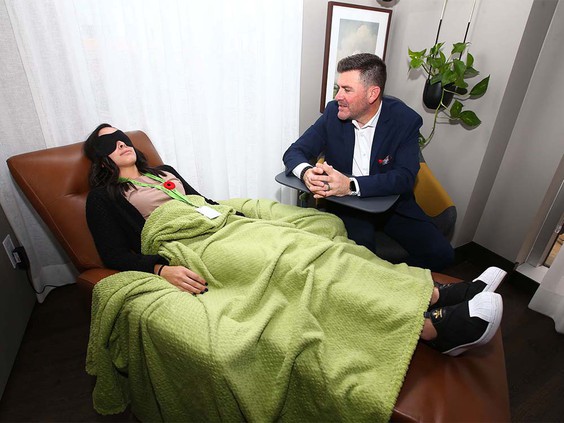Bill Kaufmann
November 8, 2021
-Calgary Herald
Alberta’s public medical system isn’t equipped to treat many of the most severe mental health and trauma patients, says a physician who’s been a leader in its war against opioids.
So, Dr. Robert Tanguay said it was time for a new approach that’s led to what he’s calling the nation’s first medically assisted intensive outpatient program for the treatment of mental health — and one that employs psychedelics in tackling depression, post-traumatic stress, chronic pain and addiction.
“There came a point where we needed to do something different and better,” said Tanguay, the former medical lead for Alberta Addictions Education with Alberta Health Services.
“I’d always be running into obstacles from those who don’t understand what treatments work. . . (The system) isn’t one that puts experts and patients first.”
An obstacle in the minds of provincial health-care officials, he said, is the use of anesthetic and hallucinogenic ketamine in opening patients’ minds for a host of other therapies at the Newly Institute, which began operating last month out of 13,000 square feet of space in Calgary’s Mission District.
“(Ketamine’s) basically a catalyst to therapy, an adjunct to other treatment and not just a protocol in itself,” said Tanguay, the institute’s chief medical health officer.
“It brings down personal barriers to allow for more intensive trauma therapies.”
Ketamine, he says, paves the way for a range of professionals — including kinesiologists, psychotherapists, nurses, psychologists and social workers — to contribute to treatment.
He notes other therapists are using psilocybin to ease the mental pain of palliative patients; that drug remains illicit and legally employed only under special Health Canada exemptions. The Newly Institute, said Tanguay, will assist in researching the medical merits of psilocybin and MDMA, the latter a mood and perception-altering drug also known as ecstasy.
For now, the clinic will work to expand an inter-disciplinary approach that includes psychotherapy sessions for four weeks, which the physician says helps treat the roots of addiction.
“This is reaching people who couldn’t be treated before. . . It’s a true chance for a paradigm shift of how we do everything,” he said.
So far, the outcomes have shown results can be achieved in far shorter time frames than those required with more conventional therapies, said Tanguay.
“Many of our patients have found it’s ending depression and suicidal ideation within hours. . . To see stabilization within days is remarkable,” he said. “It’s been working just as the research suggested it would.”
The clinic’s main patient focus is on military veterans and first responders whose trauma levels have reached disturbing heights, said Tanguay.
Increasingly entering that client mix are health-care workers staggered, he said, by both the medical demands of the pandemic and hostility from members of the public resistant to regulations and vaccines.
“The need is astronomical. We’ve met with police associations and departments who all say the same thing, that their officers are struggling and have never seen it more,” said Tanguay.
Intravenous opioid users have also experienced rapid results, he said, while adding more mainstream use of methadone and suboxone continue to be used.
Calgary police officer Jas Kainth — one of the clinic’s first patients — said multiple conventional treatments had limited success helping his complex PTSD, while Newly’s approach took that therapy deeper into his personal psyche.
“While working with young victims of trauma, I tried to pretend that I didn’t experience the same thing as a child,” said the veteran officer. “I spent many years suffering in silence, as many men do, and I can’t continue this way.”
Kainth said he’s hoping the new therapy will identify triggers that set off anxiety, insomnia and nightmares.
At a press conference Monday officially opening the Calgary clinic, Associate Minister of Mental Health and Addictions Mike Ellis, a former police officer, was scheduled to join staff members at the event.
His presence, said Tanguay, doesn’t mean that treatment is about to be covered under provincial health insurance “but we’d do anything to see that stigma (over psychedelics) broken down.”
The institute is expecting to open branches in Ottawa, Edmonton, Fredericton, N.B., Vancouver and several other centres in Alberta in 2022.




